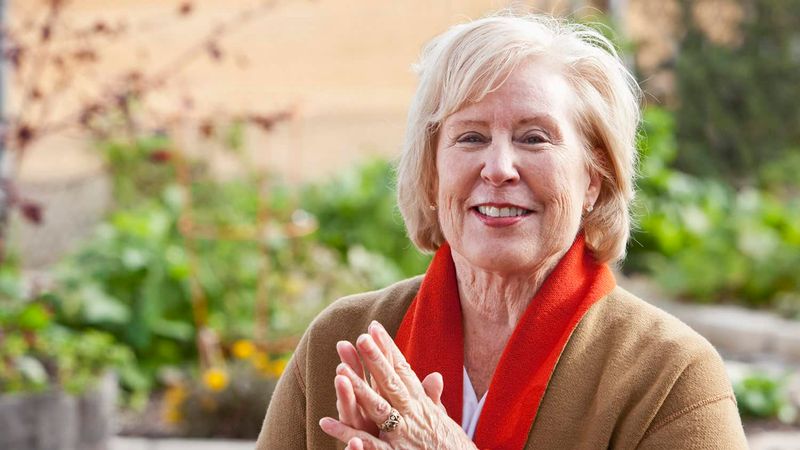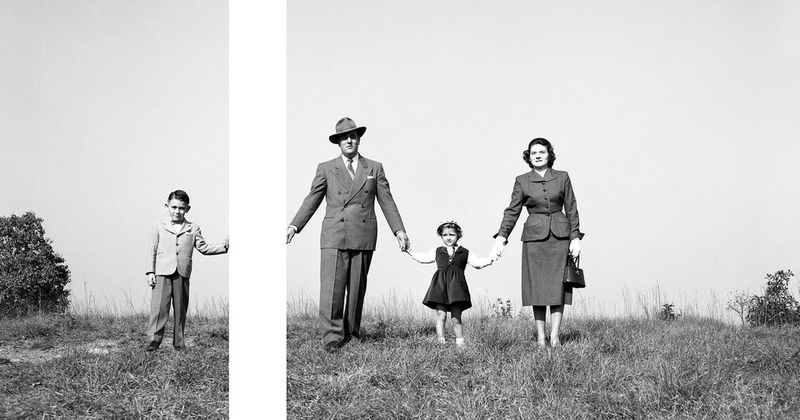19 Values Boomers Tried To Pass On But Nobody Took Seriously
Reflecting on the generational gap, some values cherished by Boomers have lost their grip on the minds of younger generations.
While Boomers held some beliefs close to heart, these ideas didn’t resonate as strongly with younger folks. In this blog post, we explore 19 such values with a touch of irony and humor.
1. Respect your elders—no matter what they’ve done

“Respect your elders,” they said, but what if those elders weren’t always deserving? Boomers believed in unconditional respect, a nod to a different era where age equated wisdom. However, younger generations ask for more: kindness, empathy, and effort. Respect should be earned, not given blindly. Perhaps it’s the shift towards authenticity that young people crave.
In their eyes, mutual respect means everyone has a voice, no matter their age. It’s about building relationships based on shared values, not just seniority. The narrative has changed, emphasizing equality over hierarchy. Yet, the intention behind this value remains: fostering understanding across generations.
2. Keep your problems private (even if they’re destroying you)

Keeping personal struggles under wraps was seen as a badge of honor by Boomers. Privacy was prized, and sharing one’s problems with the world seemed unnecessary. This stiff upper lip approach, however, doesn’t resonate with many today. Younger people prefer openness, finding strength in vulnerability and community support.
Social media and mental health awareness have shifted perspectives. The new narrative embraces sharing as a form of healing, reducing stigma around mental health. In this world, airing one’s woes isn’t weakness—it’s a step towards recovery. The value of privacy has evolved, but the core desire for self-preservation stays relevant.
3. Stick with the same job for 40 years

Loyalty was the watchword for Boomers, who valued sticking with one company for decades. This was a sign of stability and success. But in an era of startups and gig economies, younger generations seek variety and fulfillment. Changing jobs is seen as a way to grow and find one’s passion.
The new workforce believes in flexibility and work-life balance. Job-hopping is no longer frowned upon but celebrated. This shift reflects a desire for meaningful work over financial security. While Boomers saw loyalty as a virtue, today’s workers view adaptability as their strength.
4. Don’t question authority—it’s disrespectful

In the Boomer era, questioning authority was often viewed as a lack of respect. Many believed in the chain of command and the wisdom of those at the top. However, younger generations see questioning as a sign of engagement and critical thinking. They value transparency and accountability, eager to hold leaders to higher standards.
This has given rise to movements demanding change and justice. While Boomers cherished order, today’s youth seek innovation and reform, challenging systems that no longer serve everyone. The essence of this value persists: respect should foster dialogue and progress.
5. Marriage is forever, no matter how miserable it gets

“Till death do us part,” was a mantra Boomers took seriously, valuing the sanctity of marriage. Despite difficulties, staying together was a sign of commitment. Yet, younger generations prioritize happiness and compatibility. Divorce is no longer taboo but an option for those seeking fulfillment.
The modern approach to relationships is more fluid, focusing on personal growth and mutual contentment. While Boomers championed endurance, today’s couples embrace change as a path to joy. The core belief in love’s value remains, though the expression has evolved.
6. Hard work is the only kind of success

For Boomers, hard work was synonymous with success. Clocking long hours was a testament to dedication. However, younger folks redefine success, valuing creativity and impact over sheer effort. Remote work and digitalization allow new ways to achieve goals.
The modern workforce seeks efficiency and effectiveness, breaking free from traditional measures of success. The value of hard work hasn’t disappeared, but its interpretation has expanded. Now, it’s about working smarter, not harder, while still achieving meaningful results.
7. Emotions are weakness—especially in men

Boomers grew up believing emotions, especially in men, were a sign of weakness. Stoicism was esteemed, leading many to bottle up feelings. Today, however, emotional expression is considered a strength. Young people champion mental health awareness, encouraging vulnerability and authenticity.
The modern man is allowed to be in touch with his feelings without judgment. This shift fosters deeper connections and understanding. The core desire to be strong persists, redefined through emotional intelligence and empathy. Strength now involves embracing one’s full emotional spectrum.
8. Don’t talk about money—it’s rude

Discussing finances was once taboo, viewed as impolite or boastful by Boomers. Money was a private affair. But in today’s world, financial literacy and transparency are valued. Younger generations see talking about money as empowering, breaking the stigma around economic discussions.
Sharing tips and advice is common, fostering a culture of financial responsibility. While Boomers held decorum dear, today’s youth prioritize openness, learning, and growth in managing finances. The taboo is less about manners and more about collective prosperity.
9. Privacy over therapy—figure it out alone

Boomers often believed in handling problems privately, figuring things out on their own. Therapy was seen as a last resort or unnecessary. However, younger generations embrace therapy and mental health support, viewing it as a proactive approach to well-being.
The taboo around seeking help has diminished, with many advocating for mental health awareness. The shift highlights the importance of community and professional support. While Boomers valued self-reliance, today’s youth see strength in seeking guidance and sharing struggles.
10. Stay loyal to blood family, even if it hurts

Family loyalty was a cornerstone value for Boomers, who held blood ties above all else. This often meant enduring difficult relationships out of obligation. Today’s generations, however, prioritize mental health and personal boundaries.
Chosen family, based on love and respect, takes precedence. Younger people seek relationships that nurture, even if it means stepping away from toxic dynamics. The core idea of family remains, but it’s more inclusive, emphasizing quality connections over mere blood relations.
11. Never take a sick day unless you’re dying

“Push through the pain,” was a common mindset among Boomers, who rarely took sick days unless absolutely necessary. This grit was admired, but today, health is prioritized over presenteeism. Younger generations recognize the importance of rest and self-care, understanding that productivity shouldn’t come at the cost of well-being.
The pandemic reinforced this view, highlighting the need for balance and health-conscious work environments. While Boomers admired resilience, today’s workforce values sustainable practices, aiming for long-term success.
12. Kids should be seen, not heard

Boomers often cherished a quiet, orderly environment where children were expected to be silent observers. Today, the opposite rings true, with young people encouraging self-expression and active participation from children. The belief is that children offer fresh perspectives and creativity.
This shift has given rise to child-centered approaches in education and parenting. While Boomers valued discipline, today’s approach nurtures potential and individuality. The essence of this value remains, albeit with a modern twist, focusing on empowerment rather than restraint.
13. Be grateful, not demanding

To Boomers, gratitude was a virtue, encouraging acceptance and contentment with what one had. In contrast, younger generations view advocacy and demand for better conditions as essential. They strive for progress and improved quality of life, not just for themselves but for society at large.
This activism is seen as a way to bring about positive change. While gratitude remains important, it’s balanced with a desire for growth and innovation. The goal is to create a fairer, more equitable world, respecting past lessons while building a better future.
14. Talking back is rebellion, not communication

Boomers often associated talking back with disrespect, equating it with rebellion. Respectful silence was valued, maintaining harmony in conversations. However, younger generations see dialogue as a tool for understanding and growth. Constructive discussions, even when challenging, are encouraged.
This shift fosters open communication and stronger relationships, embracing diverse viewpoints. While Boomers prized decorum, today’s approach balances respect with the courage to speak up. The desire for harmonious interactions endures, now enriched with open exchanges.
15. Swallow your pride before you rock the boat

Boomers often advocated for maintaining peace by swallowing pride and avoiding confrontation. This value was about preserving harmony at all costs. Yet, younger generations are more willing to challenge the status quo, viewing it as necessary for progress.
They believe in standing up for what’s right, even if it causes discomfort. The modern approach values integrity and authenticity over mere compliance. While Boomers cherished stability, today’s youth prioritize meaningful change, seeking resolution rather than complacency.
16. Wanting more is greedy—just settle down

Boomers often believed in contentment with what one had, viewing ambition as potentially greedy. Simplicity and stability were admired. However, younger generations are driven by aspirations and dreams, seeking fulfillment in both personal and professional life.
The narrative has shifted from settling down to reaching higher. Ambition is now celebrated as a path to innovation and success. While Boomers valued modesty, today’s youth embrace the pursuit of more, aiming for a life rich in experience and achievement.
17. The man is the head of the household

In many Boomer households, the man was viewed as the primary decision-maker, reflecting traditional gender roles. This belief in patriarchal leadership has been challenged by younger generations who value equality and shared responsibilities. Modern relationships often emphasize partnership and collaboration, with both partners contributing equally.
This shift reflects broader societal changes towards gender equality. While Boomers respected traditional roles, today’s couples redefine family dynamics to foster mutual respect and empowerment. The essence of leadership remains, now shared more equitably.
18. Stick to tradition—it worked for us

Tradition held a special place for Boomers, who cherished customs as part of their identity. Change was often met with skepticism. However, younger generations embrace innovation and diversity, blending the old with the new.
They see tradition as a foundation, not a limitation, exploring ways to incorporate modern values into age-old practices. This evolution reflects a desire for inclusivity and relevance. While Boomers found comfort in tradition, today’s youth seek a balance between honoring the past and embracing the future.
19. Trust the system—it’s always worked before

Boomers often placed trust in established systems, believing in their reliability and stability. Institutions and norms were seldom questioned. However, younger generations challenge these systems, seeking reform and justice.
They advocate for transparency and accountability, driven by a desire to create fairer structures. The modern approach is rooted in skepticism and the pursuit of truth. While Boomers valued stability, today’s youth push for change, recognizing that systems must evolve to remain relevant and just.







